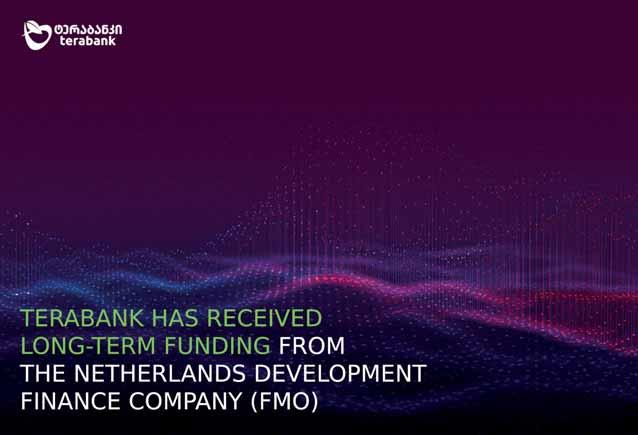
11 minute read
BUSINESS
from Issue #1302
terabank Receives Long-Term Funding from the FMO
The Netherlands Development Finance Company (FMO) has provided $20 million in long-term fi nancing to terabank. The bank received a portion in the amount of EUR 8,500,000 and a portion of GEL 34,000,000 in bonds.
Advertisement
The attracted funds will be spent mainly on the promotion and development of small and medium-sized businesses, one of the strategic segments of terabank. 15% of the money will be spent on supporting young entrepreneurs. "We are pleased that our successful cooperation with the Netherlands Development Finance Company continues. This resource is of great importance for the expansion of terabank's lending activities and is one of its most successful areas, the promotion and development of small and medium-sized businesses,” says Sopho Jugheli, Chief Financial Offi cer of terabank.
The long-term relationship between terabank and the FMO was established in 2017. It is important that it continues to invest in Georgia, support local fi nancial institutions and develop the country's capital markets.
The FMO was established in 1970 as a public-private partnership. It invests capital in private companies and fi nancial institutions in developing countries in Africa, Asia, Latin America and Eastern Europe. The investments are aimed at promoting sustainable economic, ecological and social development.
10 Citizens of Georgia to Return Home after Seasonal Worker Program Failure
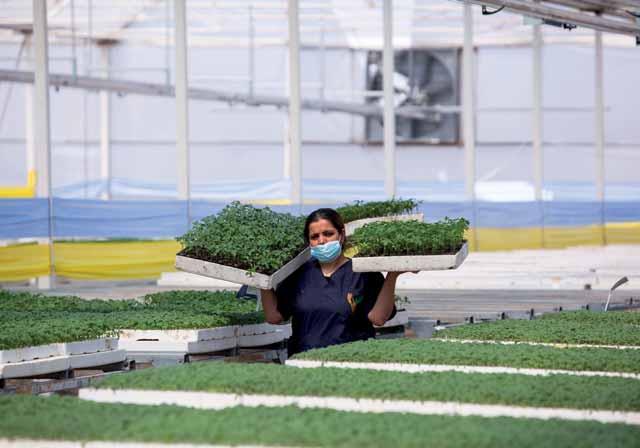
The workers claim to have been underpaid and overworked, and plan to start legal processes to sue for damages. Image source: Georgian Agriculture Ministry other employers,” the statement reads.
The German Ambassador to Georgia, Hubert Knirsch, also responded to the statement issued by the Georgian Trade Union Confederation, assuring them that all conditions stipulated in the agreement had been met.
“After the spread of information by the Georgian media, referring to a group employed for seasonal work on a strawberry farm, I talked to the German authorities about this issue. In accordance with the rules, the agencies have ensured that all the conditions stipulated in the contract are now being met, including the provision of suitable housing. In Germany, a minimum wage of 9.5 Euros is guaranteed.
“Problems can occur everywhere. The main thing is to solve them quickly. It is good that information about this case was spread in the media. I hope that the successful implementation of the program will be covered with the same attention,” said the German Ambassador.
At the beginning of April, it was announced that 5000 citizens of Georgia would be able to be legally employed in seasonal work in Germany’s Federal Ministry of Food and Agriculture from May. The decision was made due to the high interest of Georgian citizens. By April 2, more than 97 thousand Georgians had expressed their desire to work in Germany.
BY TEAM GT
Ten citizens of Georgia who participated in the seasonal employment program in Germany have returned to Georgia.
One of them, Jaba Chachanidze, told reporters that after his previous employer had violated the terms of the program, he and his co-workers were transferred to a new employer. However, they were given further reduced salaries and found themselves again in inappropriate conditions.
Chachanidze says the new employer paid them just 2.50 Euros for one box of strawberries and they often had to work overtime without a break. The returning Georgians plan to start a legal dispute against the Georgian Employment Agency to demand compensation for their losses.
Chachanidze claimed that the Georgian Embassy in Germany was not interested in the fate of the Georgian citizens working there under the mutual scheme. "This employment program is a lie, everything is built on farce, absolutely all the expenses were covered by us. I borrowed 800 Euros to go to Germany and now another 300 Euros to return home. Now I have only 5 GEL in my pocket. It’s unbearable for me. But I'd rather come back to Georgia than stay and be their slave. We will defi nitely demand compensation for the damage,” Chachanidze said.
At the end of May, the Georgian Trade Union Confederation published a statement, reporting that the 24 citizens who left Georgia for Germany for seasonal work were in “diffi cult working conditions.”
The GTUC noted in the statement that the employed citizens were not receiving the promised remuneration, with their given salary being 3 Euros instead of the promised 9 Euros per hour. They claimed the unbearable living conditions in which the Georgian citizens were expected to live were even more alarming.
“The union requests the German Ambassador look into the issue, and the Minister of Labor and Health of Georgia Ekaterine Tikradze take an immediate interest in the situation of the Georgian citizens because the Employment Promotion Agency of the Ministry of Labor was the organizer of their trip to Germany,’ the GTUC wrote.
The State Employment Promotion Agency responded to the GTUC statement, noting that they share the concern expressed by one of the groups that traveled to the Federal Republic of Germany within the framework of the Georgian Labor Force Employment Agreement. The agency stated that separate issues should be resolved with the German side.
“We confi rm that there was dissatisfaction on the part of the representatives of one group due to the violation of the conditions offered by the employer in the job description. Regarding this, the fi rst contact with the German side was made by the State Employment Promotion Agency upon receiving the information.
“Specifi c measures have been taken to improve the conditions of this particular group, which is the result of the active work of the Georgian side.
“Most importantly, based on the agreement between Germany and Georgia and the terms of the job offer, the employer agreed to pay the correct, agreed-upon hourly wages to employees from Georgia. If the given conditions are not met, the Georgian side demands the redistribution of members of this particular group to
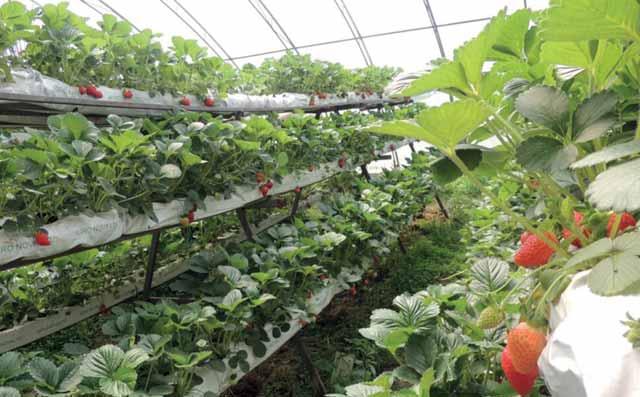
At Business and Technology University, Biotechnology Week Held with Participation of Science Developer Carl Zeiss AG
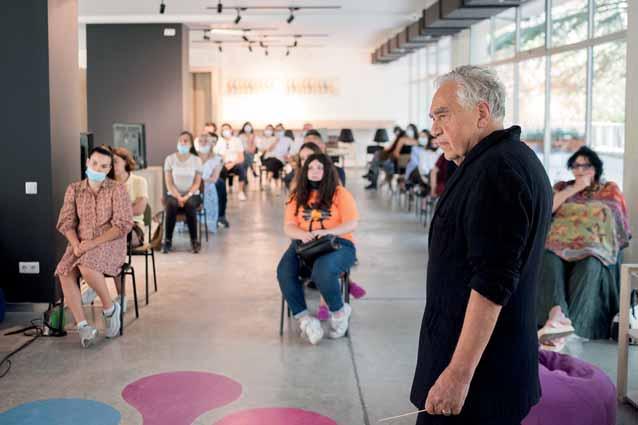
TRANSLATED BY KETEVAN SKHIRTLADZE
Biotechnology Week is over at the Business and Technology University. The event, which started on June 16, ended successfully, As the organizers noted, it exceeded all expectations in terms of interest and reports from the attending public, the diversity, and the dynamism of the masterclasses. The week was organized by the Business and Technology University (BTU) in partnership with the Caucasus Representation of CARL ZEISS AG, a company which has existed since 1846 as a manufacturer of innovative technologies in the fi elds of medicine, biotechnology, and astrology. ZEISS's name is associated with many innovative achievements, among them, the highest quality optics (ZEISS), used in microscopy, and the most complex medical, scientifi c and astrological instruments. Carl Zeiss himself participated in the fl ight of the fi rst ship to the moon and invented the planetarium. The CARL ZEISS Company also operates a fund whose main mission is the development of science, and for this, almost 40% of the company's revenue is transferred to the fund, which is used to fund scientifi c research.
The target groups of the week were pupils, entrants, students, researchers, and startups working in the biotechnological fi eld or wishing to get involved. The workshops, masterclasses, and lectures held for them were prepared by leading Georgian scientists working in the fi eld, their reports richly saturated with visual-practical spectacles and examples. Among speaker scientists and specialists in the fi eld was Head of CARL ZEISS Foundation Caucasus Offi ce, Nino Lomuashvili with a public lecture entitled ‘CARL ZEISS - Leader of Artifi cial Intelligence and Biotechnology;’ Specialist in cell/tissue biology, recognized expert in 3D / 4D digital imaging technologies of modern microscopy and bio-structures Pavle Chelidze, with master classes ‘Digital optics: From space to individual molecules’ and ‘Intellectual Images: Life Imprinted in Space and Time;’ and neurobiologist, Doctor of Biological Sciences, Professor of Ilia State University, Head of the Laboratory of Brain Ultrastructure and Nanoarchitectonics Ivane Beritashvili Center for Experimental Biomedicine, Mzia Zhvania, with the topics ‘Fundamentals of Nanotechnology’ and ‘Nanotechnology in Biology and Medicine.’
Biotechnology Week was held in Georgia for the fi rst time. As Nino Enukidze, Rector of the Business and Technology University notes, the most important thing in this process is that Georgian scientists with many years of experience in cooperating with the world's leading research institutes were presented in front of people interested in this fi eld.
“Biotechnology is a particularly interesting fi eld for the Business and Technology University, as it is one of the fastest-growing sectors in the innovative ecosystem globally, with growing funding, venture capital, and employment,” Enukidze noted. “Ultimately, we imagine it will move globally into the top three industries that will grow rapidly and become one of the largest employers.
“Against the background of the pandemic, everyone saw the importance of biotechnology once again. There are approximately 10,000 diseases in the world and only 500 of them are managed and cured with the involvement of medication. The rest is still unexplored. Diseases are one of the very small areas covered by biotechnology. Today, this fi eld covers the fi eld of agriculture, agriculture, pharmacology, bio-mega data processing using artifi cial intelligence, nano technologies, synthetic biology, which is considered to be the fi eld of the future, etc. In short, this fi eld is endless and since the technological component has entered biology very actively, this has also attracted the attention of BTU.”
As she notes, this is the second event held in a physical environment since the start of the pandemic. Of course, in full compliance with the regulations.
“To be honest, we are very careful, a second event for BTU in two years is a very unusual situation because we often hold 4-5 events a day. Despite the fact that there is a pandemic, a lot of people attended the week and we are very happy about it,” the rector added.
While speaking to us, she also highlighted that the interest of young people in the fi eld of biotechnology and BTU itself is growing, and it has improved its record in terms of registration for the Unifi ed National Examinations, as there are many more applicants registered for each program than in previous years.
Dr. Lili Nadaraia, a specialist in nanotechnology, nanomaterials, and electron microscopy, was one of the speakers. She spoke about the importance of microscopy in microbiology ‘Electron microscopy and the microworld around us,’ - was the title of the report she read, giving examples of what familiar objects look like when magnifi ed tens or hundreds of thousands of times.
“My report was intended for students,” Nadaraia said. “I tried to enhance their interest, tried to show them how interesting and varied the world is what we cannot see with our eyes. The importance of this event to increase interest in the fi eld and inspire a new contingent working here is enormous. It is a very important fi eld and should be further developed in Georgia. The pandemic has made it even more important to show that we have more work to do because there are still many things we do not know and need to study.”
In addition to students and students interested in the topic, the week was also attended by representatives of startups working in the fi eld of biotechnology. One of them is Temo Rukhaia, co-founder and director of the company BioCure, which is engaged in cleaning oil pollution using biotechnologies. He attended the week for several reasons, and says his expectations were absolutely fulfi lled.
“For a small, developing country like Georgia, it is necessary for all representatives of the fi eld to get to know each other,” Rukhaia noted. “Here, we met each other, shared experiences, and exchanged views. Also, of course, we passed on to young people the experience we have in terms of technology and business.
The lectures and master classes were informative. For startups, all of this is likely to help, as it is the primary source of information, already experience-based, and will give them a quick start. They will no longer have to search when they have already seen and heard it all, and met people who will share their experiences. I am ready to do this again any time.”
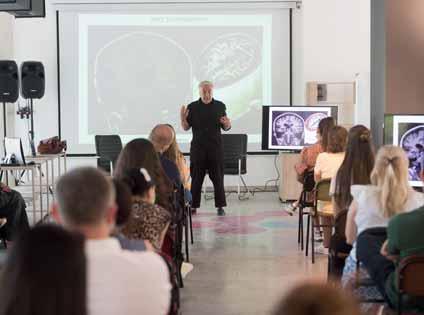
Entering a New Era of Civil Service: Georgian Civil Servants Discuss Digital Solutions in Governance and Service Delivery
As Georgian civil servants celebrated UN Public Service Day, defi ning the ‘new normal’ was at the center of a lively debate. The ‘Digital and Remote Governance – Modern Challenges’ online conference drew over 300 national and local civil servants to discuss new trends in governance, service delivery and management. The conference also explored the innovative digital solutions that are available to civil servants and citizens alike.
Discussions touched upon a range of issues related to digital governance and remote work, including digital leadership and management tools, data protection, effective use of artifi cial intelligence, electronic mentoring and coaching sysDigital Governance Agency, a consulting company ‘Reforms Lab’, the Good Governance Initiative of the United States Agency for International Development, other international agencies and several academic institutions. The conference also featured two invited international speakers, Ayazhan Mukanova, Director of International Cooperation Department at the Zerde National ICT Holding (Kazakhstan), and Nick Thijs, Senior Policy Advisor at the Organisation for Economic Co-operation and Development/SIGMA initiative (France).
Georgia’s Civil Service Bureau organized the event with assistance from UNDP and the Government of Sweden under their broader support for democratic reforms in Georgia.
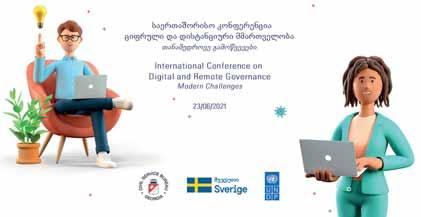
operation and introduced new digital systems for training, human resource management and reporting.”
“The pandemic accelerated digital transformation across the public sector and created new opportunities for serving citizens faster and more effectively,” said Acting Head of the United Nations Development Program (UNDP) Anna Chernyshova. “But this rapid process has also raised data security issues and deepened gaps related to unequal access to electronic resources. As Georgia emerges from the crisis, UNDP is assisting civil servants to address these challenges and meet increasing public demand.”
Speakers included representatives from the Government Administration, the





